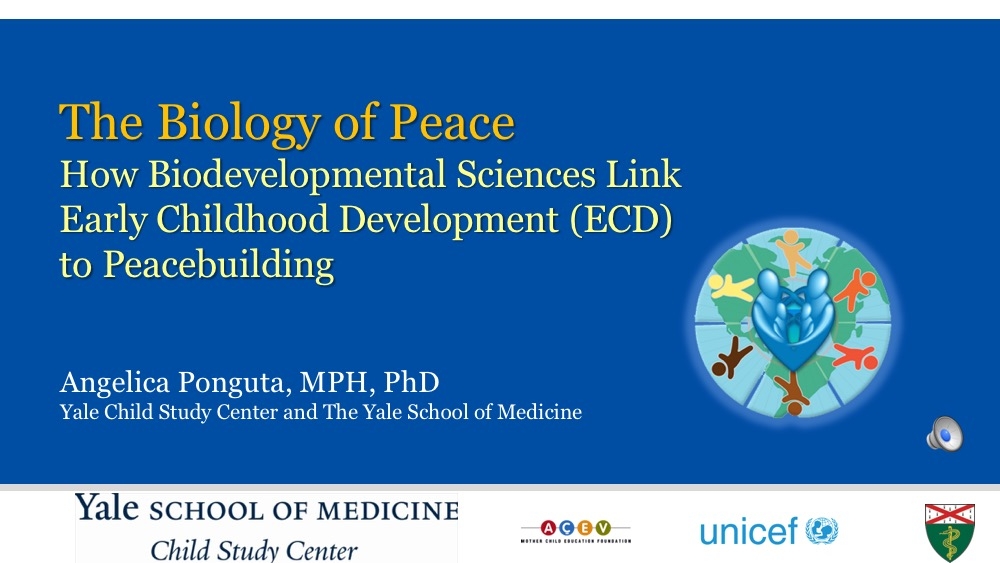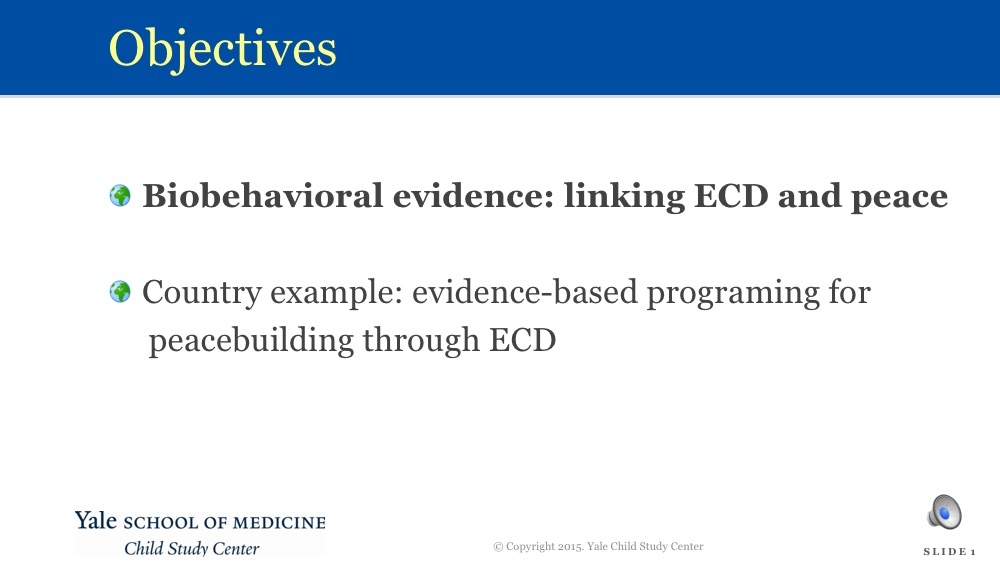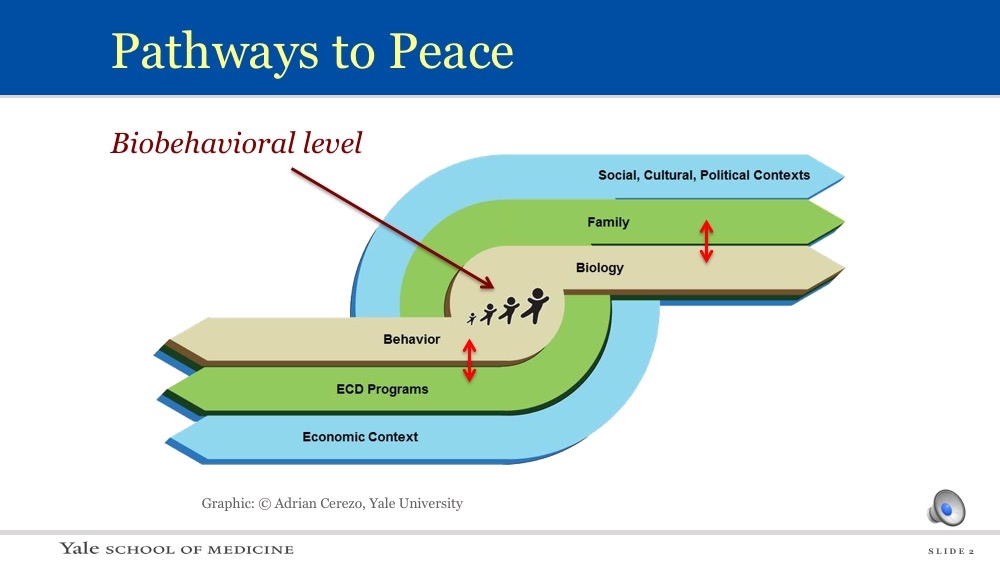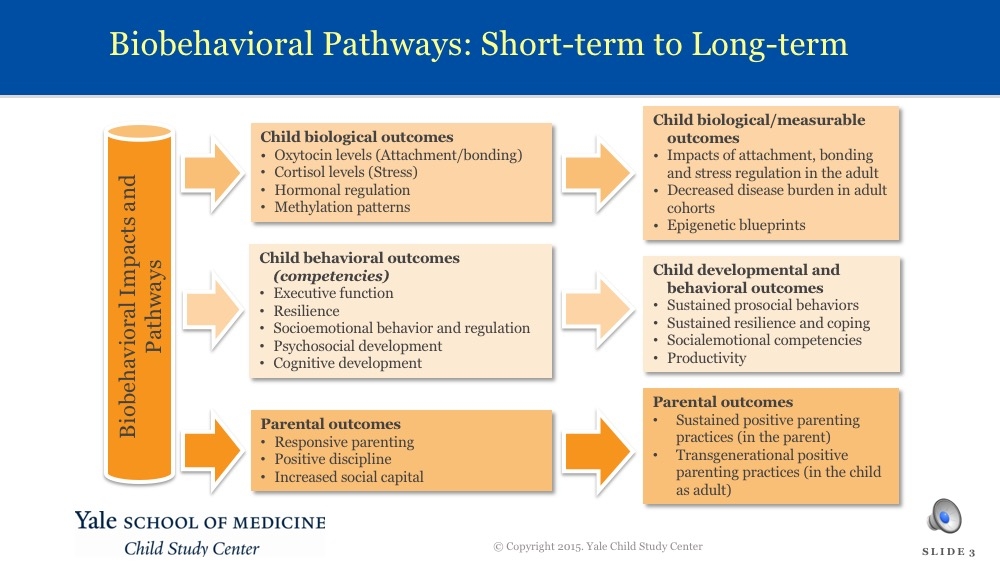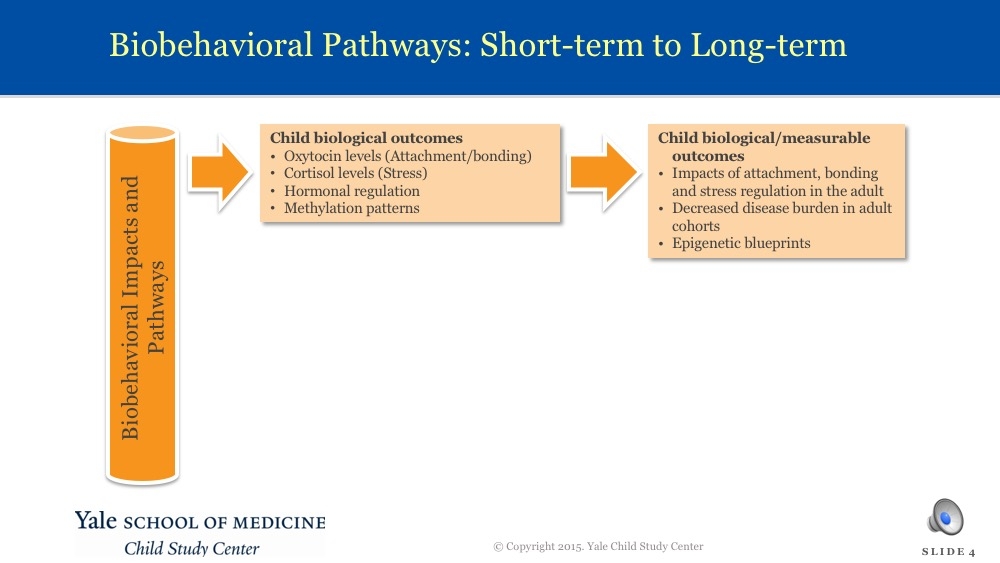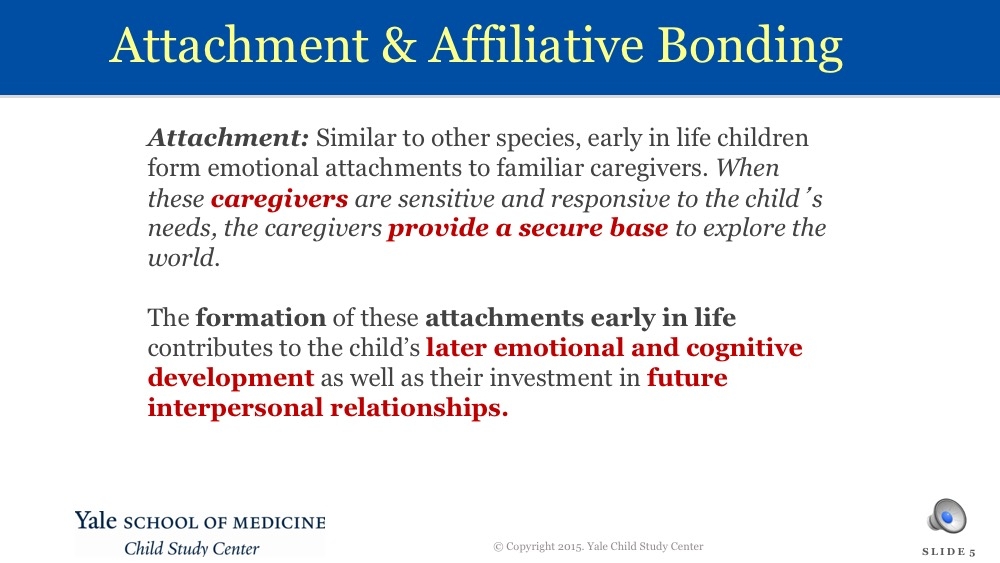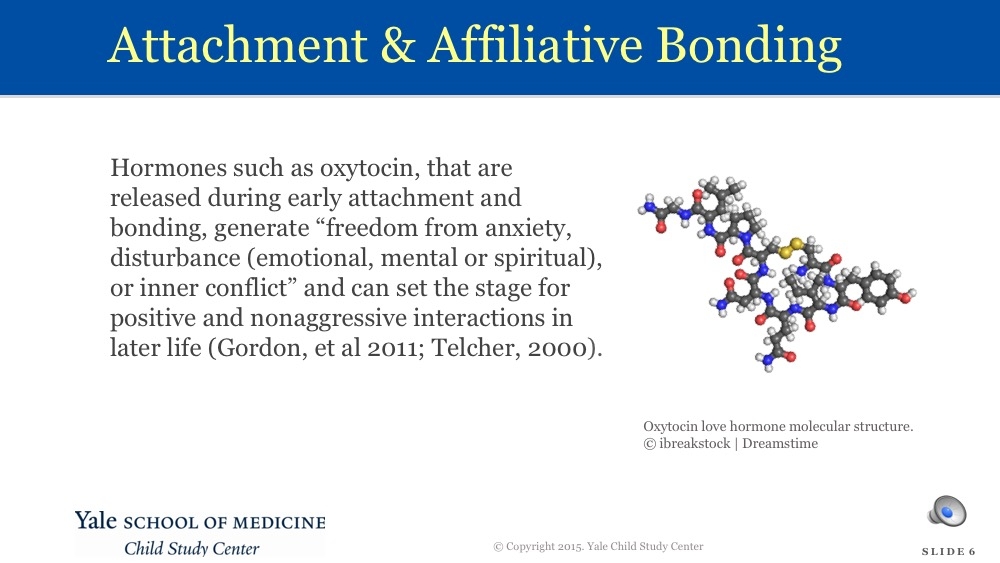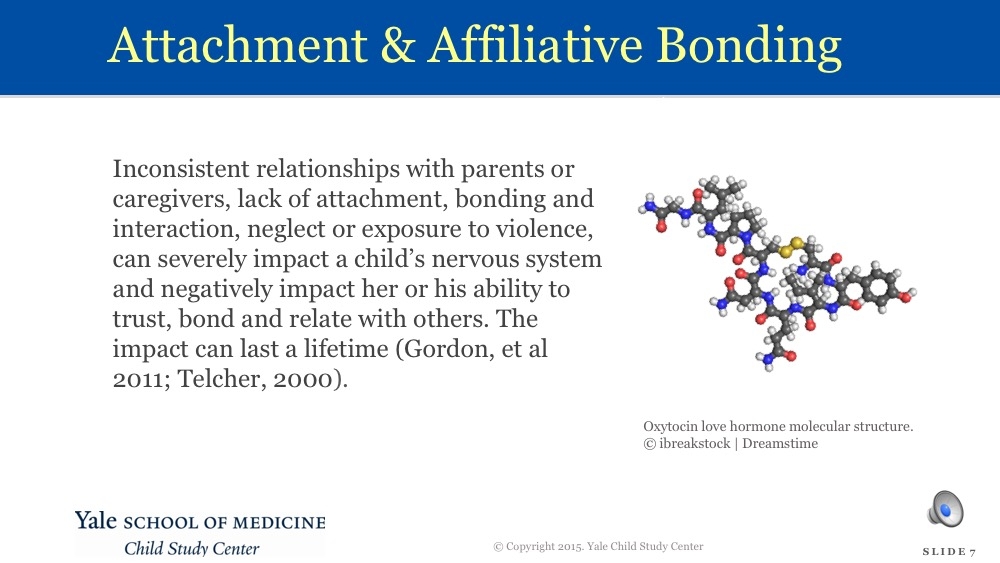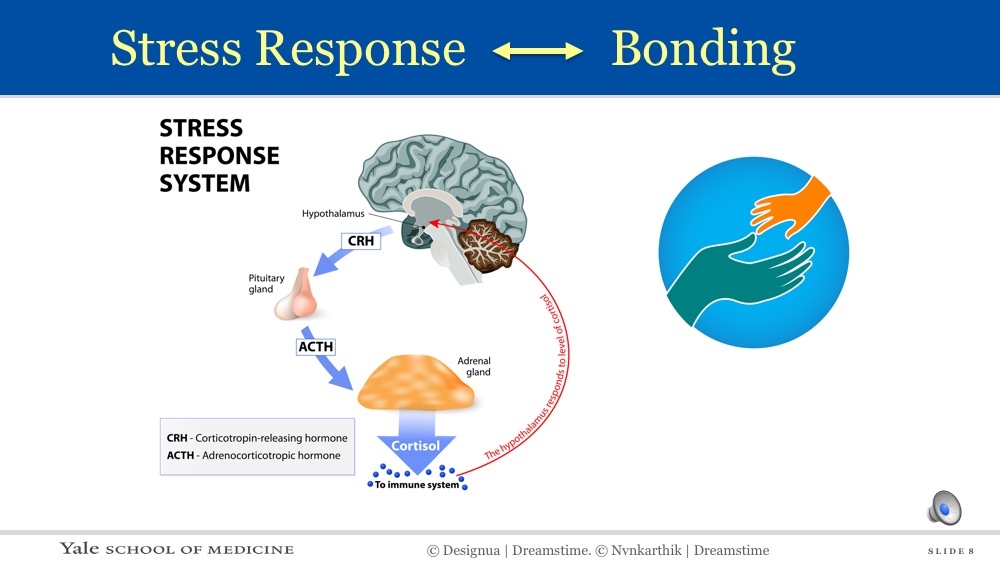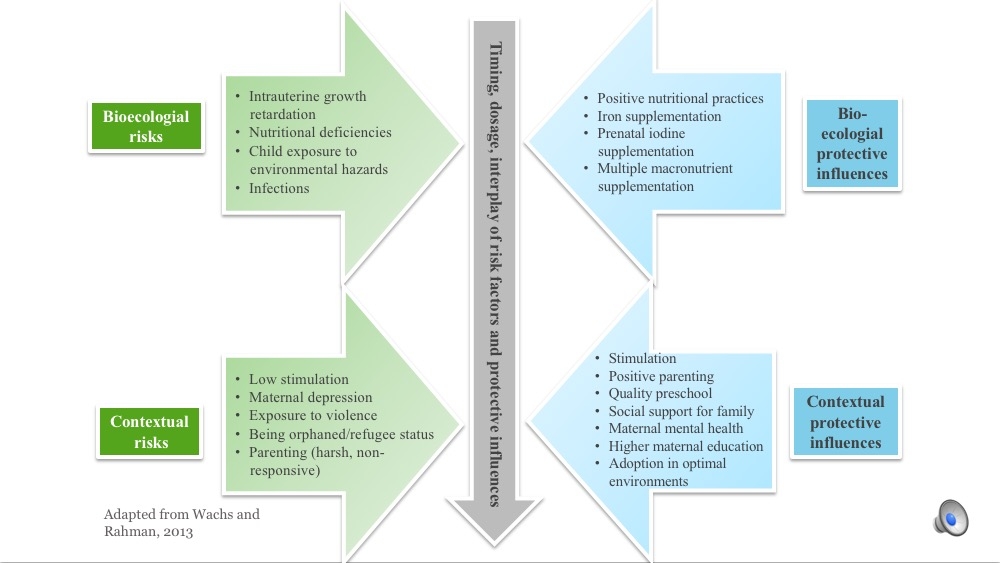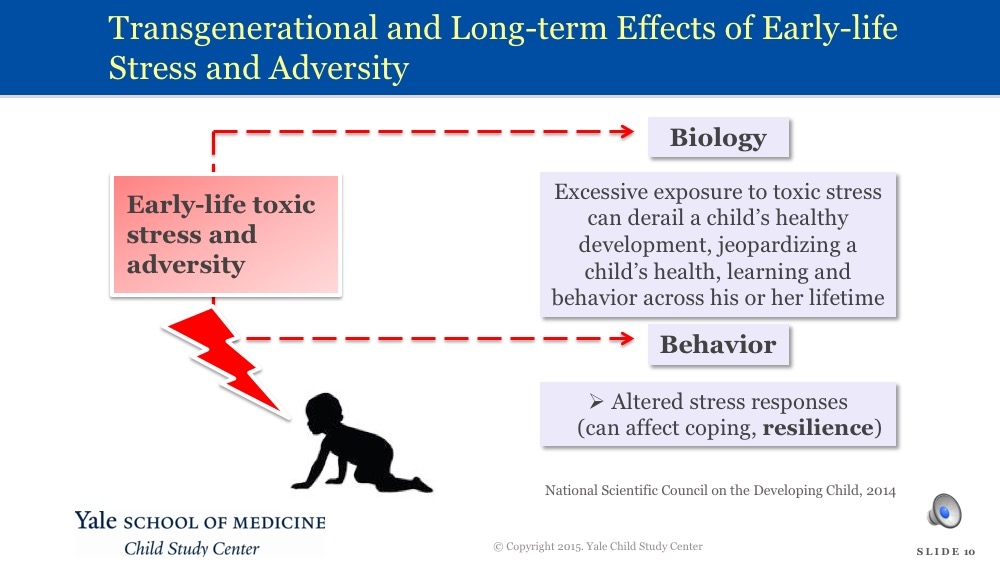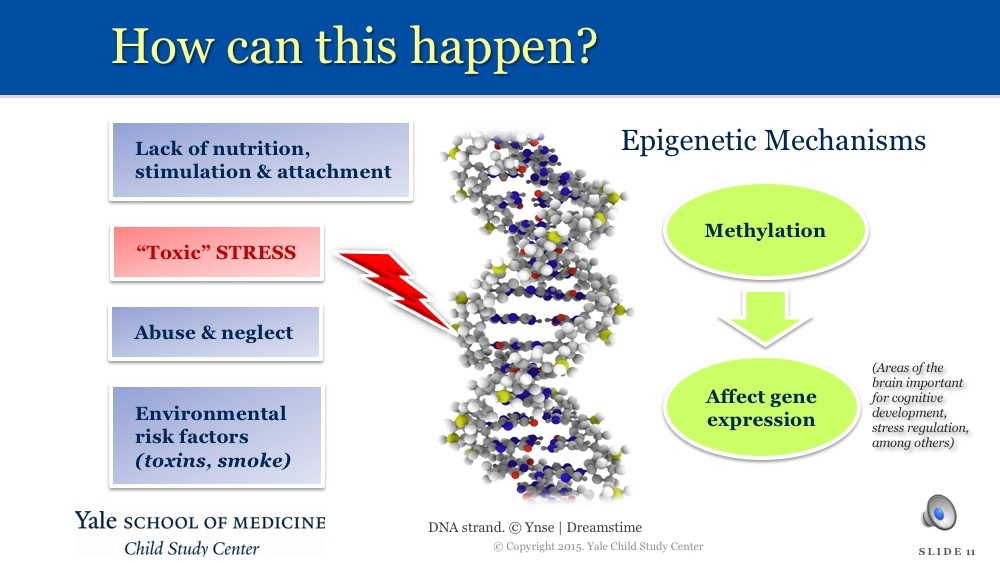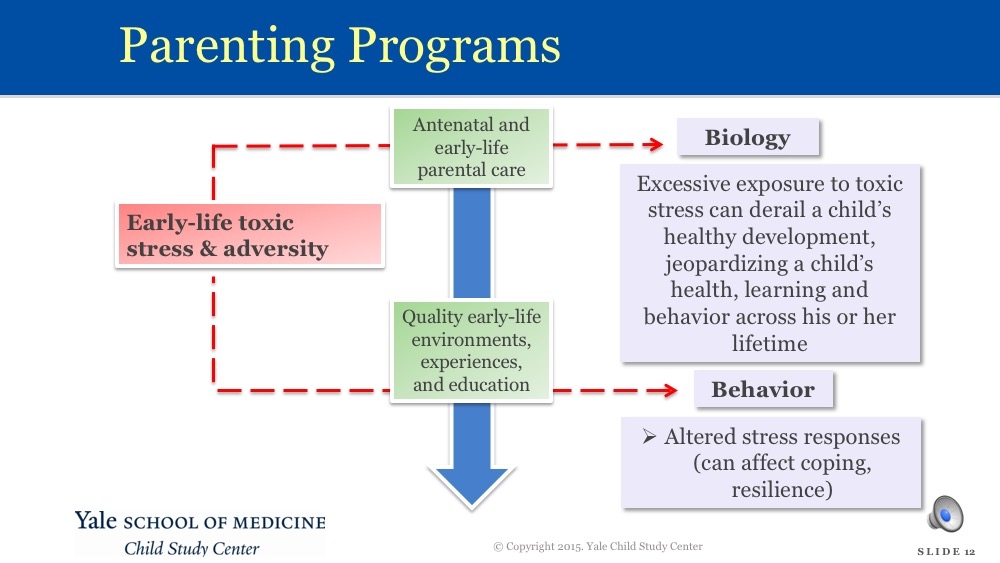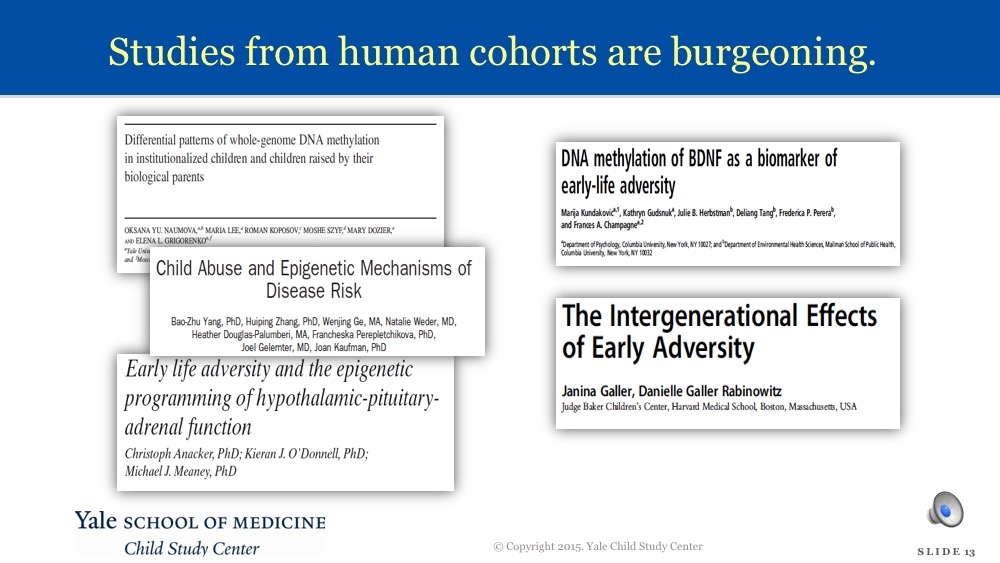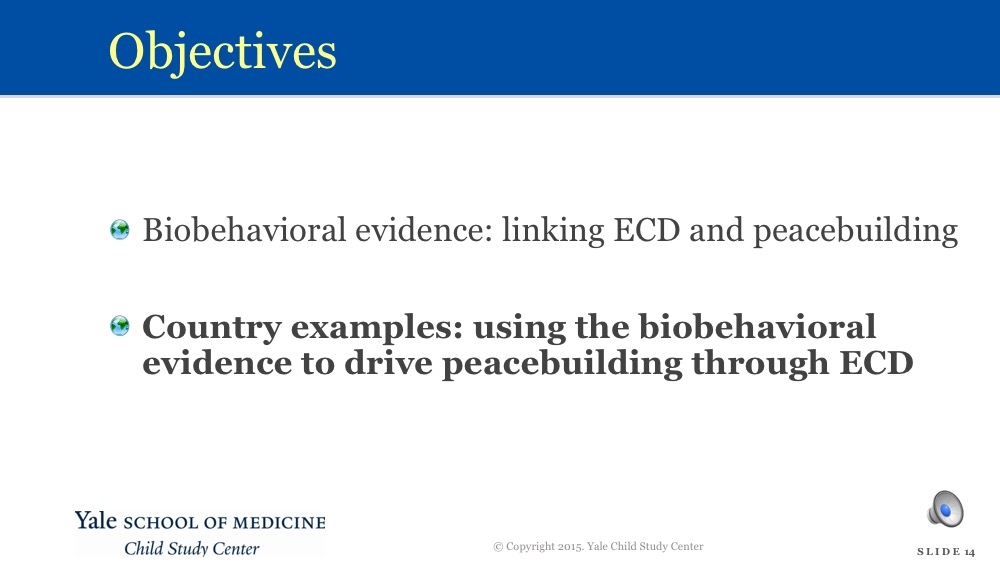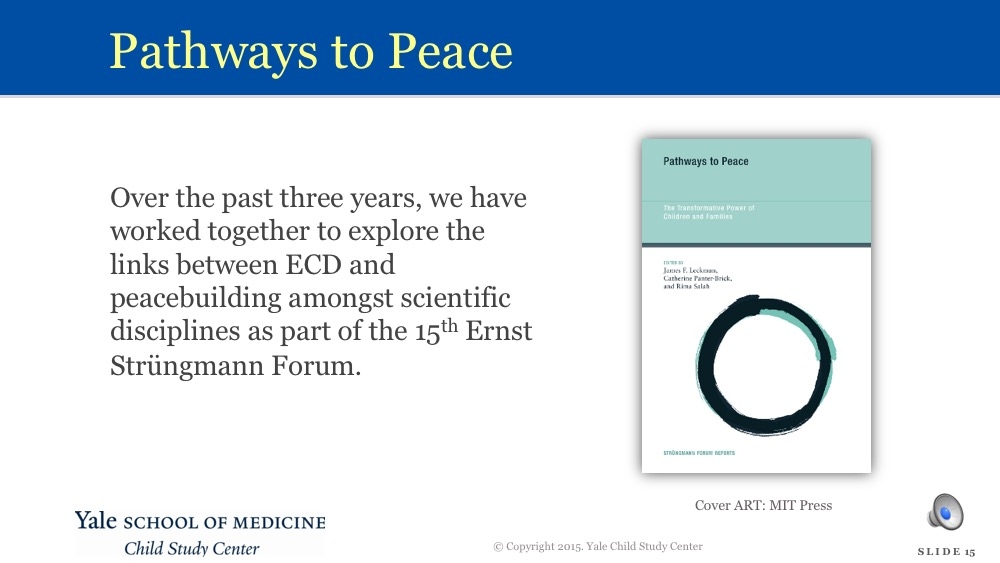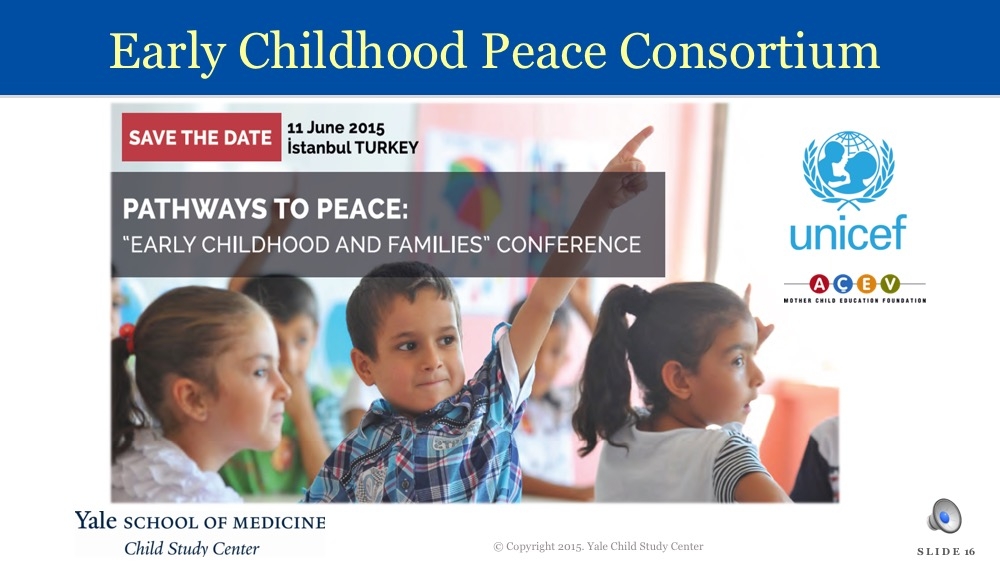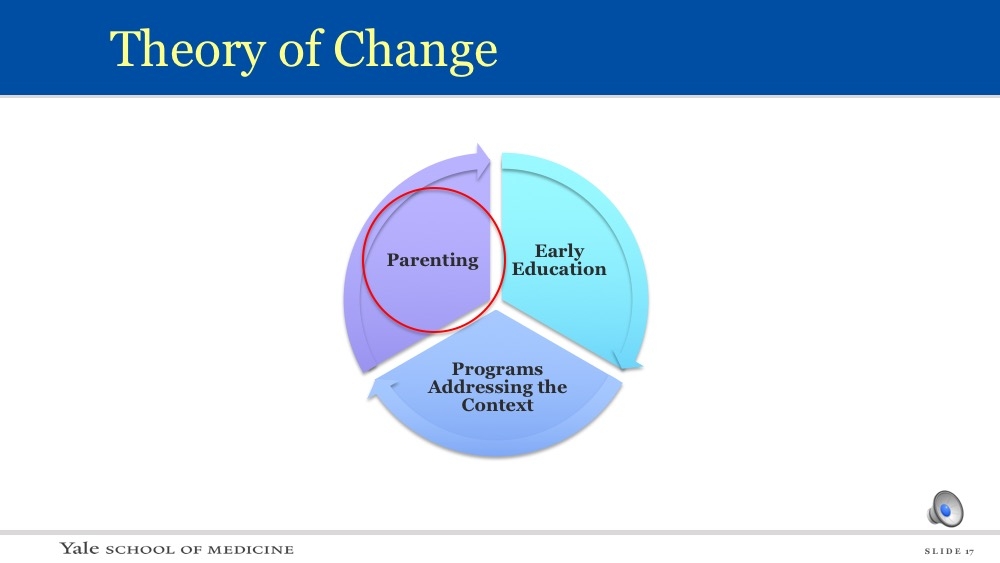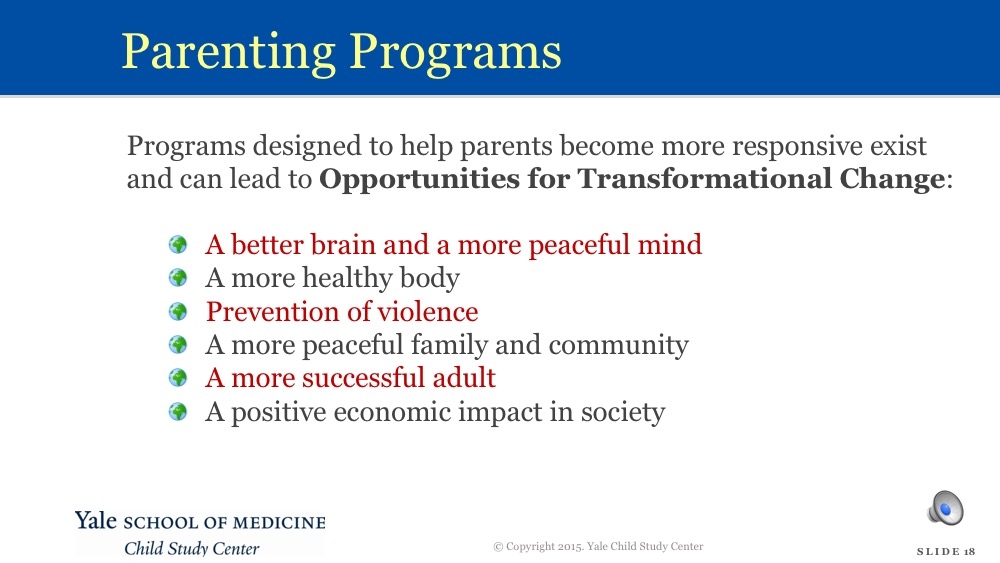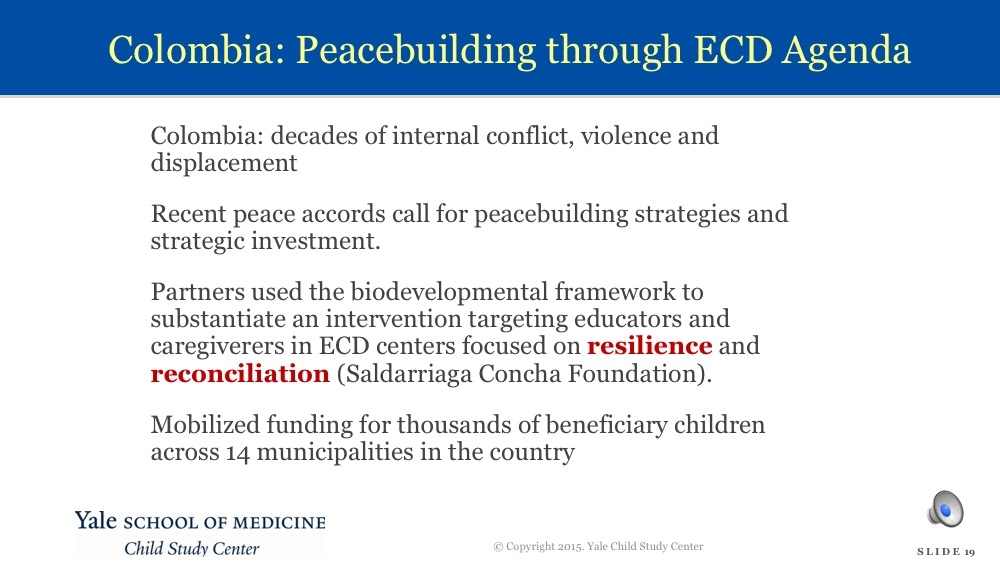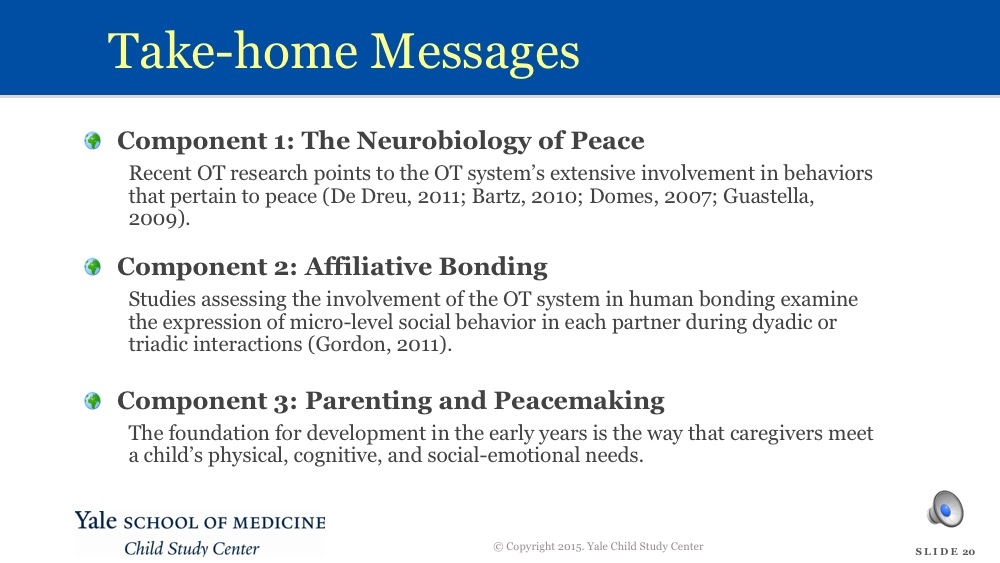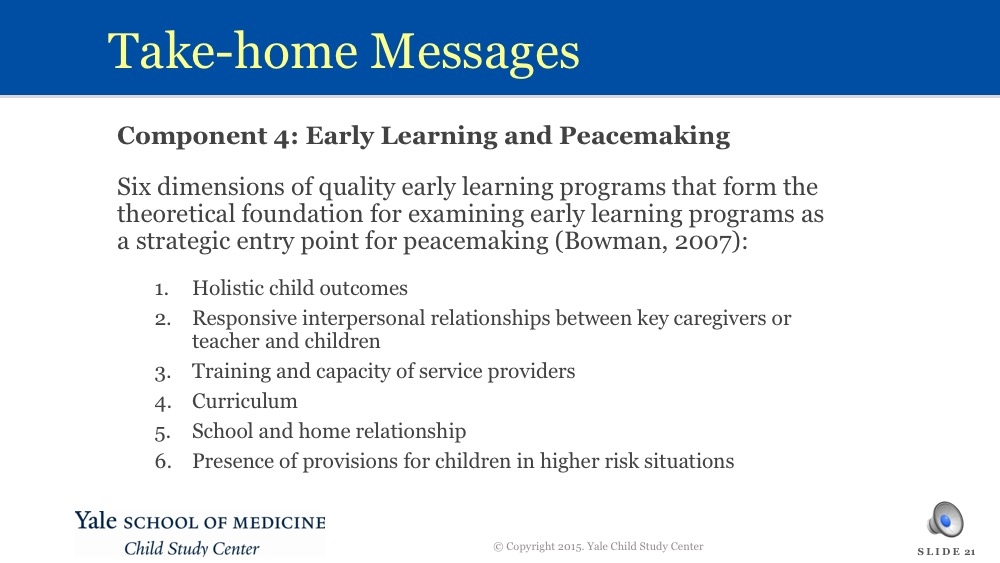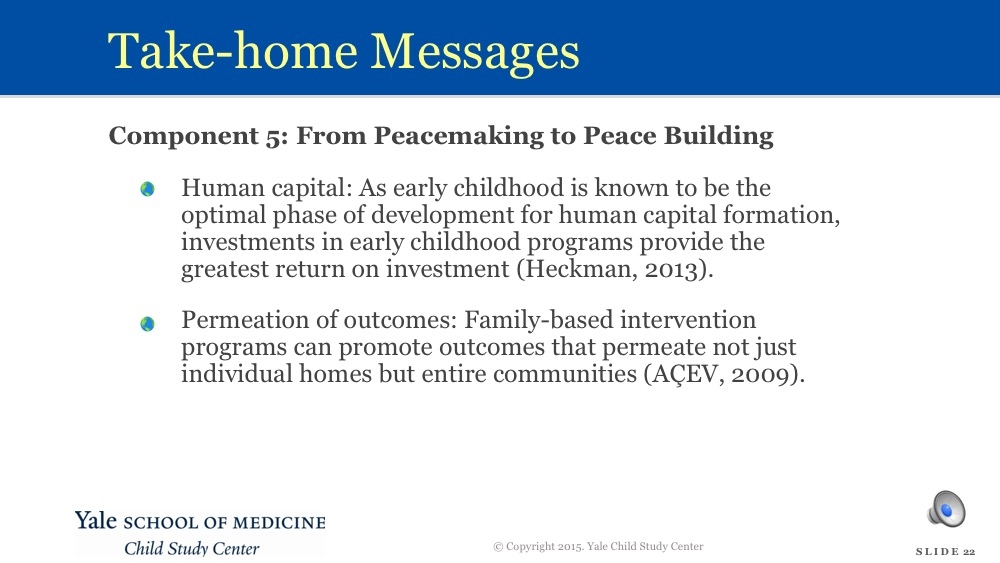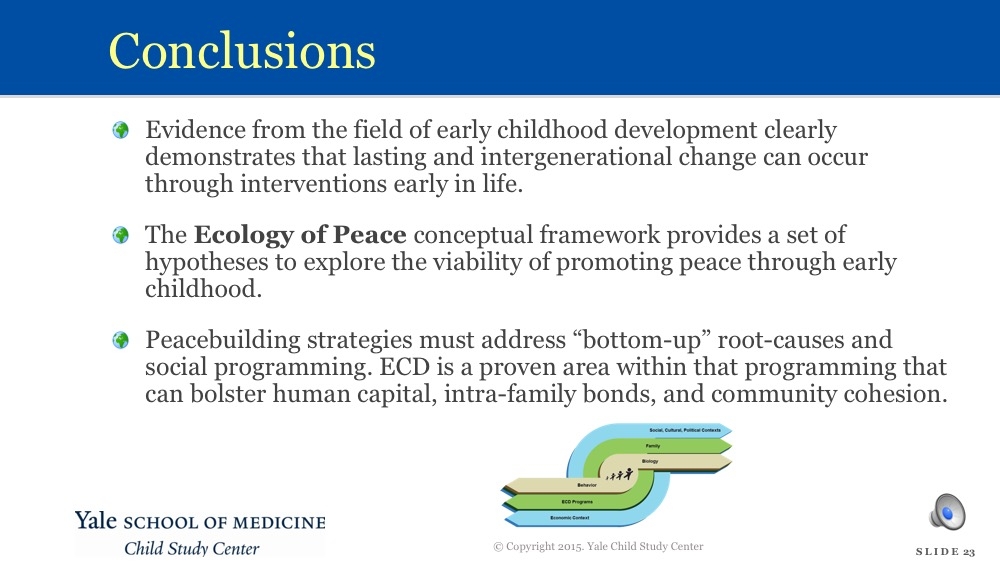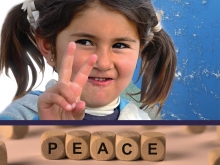The biological evidence of peace
Note: the full version of this presentation contains audio - to hear the audio, please download the full version of the presentation from the link below.
Introduction
The following information accompanies the above presentation.
Biobehavioral mechanisms, including those involving neuropeptides like oxytocin and vasopressin, underlie the development of social bonds between and among parents and children. Evidence from epigenetics suggests that interventions to strengthen families, improve children’s cognitive wellbeing, and promote children’s socioemotional health can have transgenerational consequences.
The above presentation was prepared by Angelica Ponguta, Associate Research Scientist at the Yale Child Study Center, for the Early Childhood Development (ECD) and Peacebuilding Conference that gathered stakeholders from Tajikistan and Kyrgyzstan in late 2015. The conference aimed to establish a conceptual understanding of the linkages between ECD and peacebuilding and enable planning of ECD programs for peacebuilding.
Some of the key intended outputs include:
-
Discussing ways in which ECD could be utilized as mechanisms for peacebuilding
-
Assessing ECD for peacebuilding program activities, including measuring of results
-
Generating an ECD for peacebuilding program based on a common theory of change
Contributor: Angelica Ponguta, PhD, MPH, serves as Expert Consultant to the Early Childhood Peace Consortium (ECPC). She is Research Scientist in the Yale Child Study Center.
Topics & initiatives
|
|
|
|
JOIN THE CONVERSATION
For breaking news and to stay connected, follow us on social media. Sign up to get our E-News delivered straight to your inbox.


